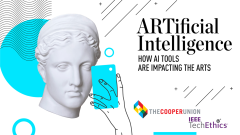There have been proposals to program ethical algorithms into machines such as cars or robots. For instance, there have been utilitarian algorithms weighing costs and benefits of machine decisions, as well as attempts to build Kant’s Categorical Imperative into systems. These engineering efforts are important, because as cars or medical and care robots continue to proliferate in society, these machines will likely confront situations in which their actions will have ethical consequences. But are machines capable of making what humans consider ethical or moral decisions? Should they take these decisions? Or do humans always need to be in the loop? This panel will convene around these important questions.
Panelists include:
- Joanna Bryson – Reader, Department of Computer Science, University of Bath & Affiliate, Center for Information Technology Policy, Princeton University
- Mady Delvaux – Member European Parliament
- Sarah Spiekermann – Institute for Management Information Systems, Vienna University of Economics and Business
- Corrine Cath – DPhil (PhD) student at the University of Oxford and an Alan Turing Institute doctoral student
There have been proposals to program ethical algorithms into machines such as cars or robots. For instance, there have been utilitarian algorithms weighing costs and benefits of machine decisions, as well as attempts to build Kant’s Categorical Imperative into systems. These engineering efforts are important, because as cars or medical and care robots continue to proliferate in society, these machines will likely confront situations in which their actions will have ethical consequences. But are machines capable of making what humans consider ethical or moral decisions? Should they take these decisions? Or do humans always need to be in the loop? This panel will convene around these important questions.
 Cart
Cart Create Account
Create Account Sign In
Sign In





